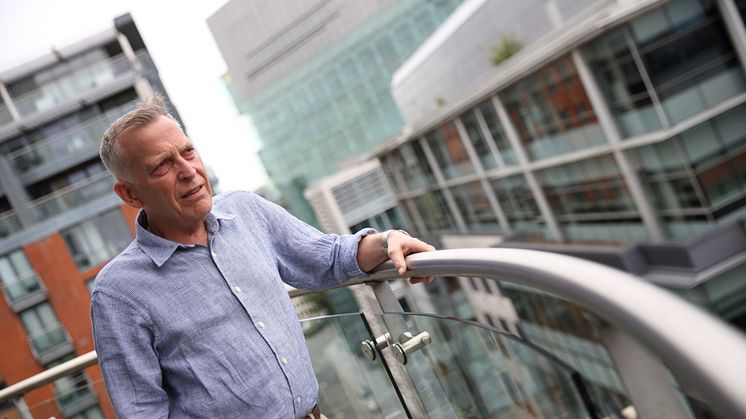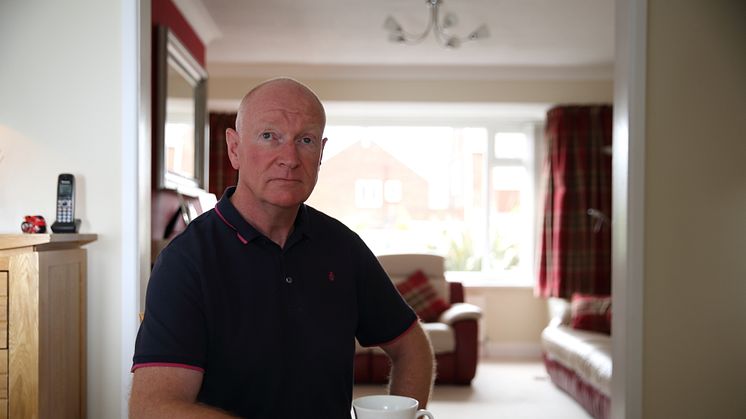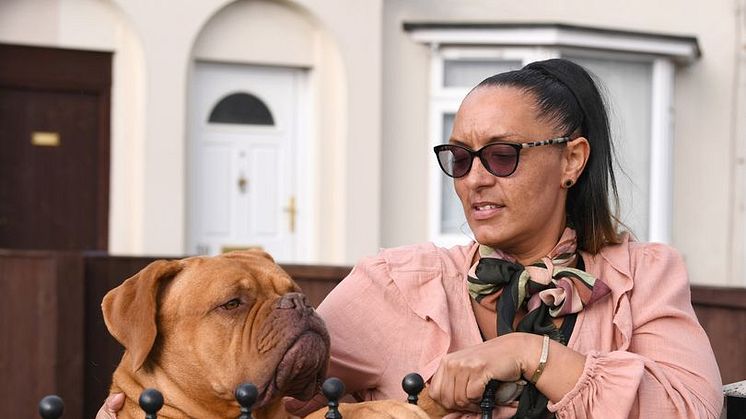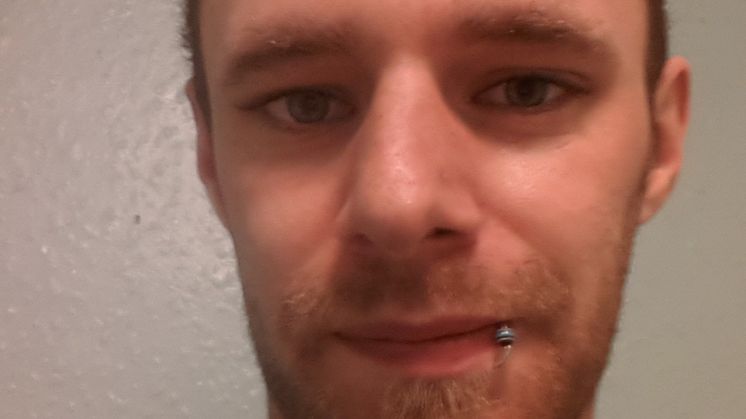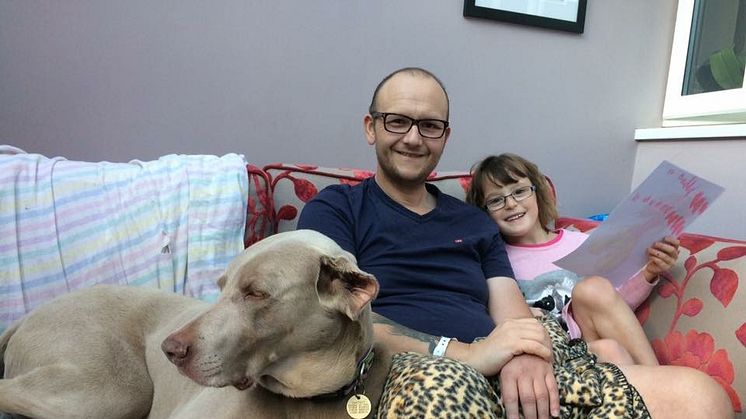
Press release -
A million stroke survivors battling mental health problems
Almost a million people who have survived a stroke have developed at least one mental health problem, according to new findings(i) published today by the Stroke Association.
There are currently over 1.2 million stroke survivors in the UK, and more than three quarters (78%) face a battle with depression, anxiety, a lack of confidence, mood swings or even suicidal thoughts. Yet worryingly, over a quarter (27%) of people say they have not received enough emotional support to help rebuild their lives.
The Lived Experience of Stroke report is the Stroke Association’s largest ever survey of people affected by stroke, with over 11,000 people responding(i). The first chapter demonstrates how the hidden effects of stroke affect almost everyone, yet can often go unnoticed by people in a stroke survivor’s life.
The findings reveal the real impact that stroke has on survivors’ mental health, with many people having to adapt to a ‘new normal’ while still living with the fear of having another stroke.
While anxiety and fear(ii) top the list of emotions that have the highest impact within the first six months of a stroke, most respondents said these effects can improve over time. In fact, more than half (56%) of these stroke survivors report now ‘feeling positive emotions’.
However, one in six (16%)(iii) people who have survived a stroke reported having suicidal thoughts, and a quarter (25%) of those were parents with children in their households. The findings reveal that among those survivors who felt this way, nine out of ten (89%) people also reported that their personal relationships had been negatively impacted since their stroke.
The charity’s latest findings demonstrate how stroke changes lives in an instant. As a result, roles within relationships are turned upside down. Overnight, a partner becomes a carer. A breadwinner becomes jobless.
Juliet Bouverie, Chief Executive of the Stroke Association, comments: “This report exposes the true devastation stroke can bring. These figures are extremely concerning, and show a desperate need for support to cope with the hidden, and often overlooked, effects of stroke. Far too many lives have been destroyed by stroke, and no-one should be left feeling suicidal. The evidence highlights how important it is that families, friends and health professionals who support stroke survivors understand what it means to live with these ‘hidden effects’, ask how people are feeling, and provide appropriate emotional and psychological support.”
Worryingly, the research also revealed that an overwhelming nine out of 10 (92%) stroke survivors experience at least one cognitive effect, such as fatigue(vi), problems with concentration, decision-making, reading, writing and poorer memory. Of those respondents:
- Almost nine in 10 (86%) of people surveyed experienced fatigue(iv), which can be debilitating and doesn’t get better with rest
- More than eight in 10 (83%) stroke survivors said they have problems with their short or long term memory
- Eight in 10 (80%) stroke survivors reported issues with concentration, which can affect their ability to do more than one thing at a time.
Hannah McGrath, 27 from Manchester, was working night shifts as a nurse, when she had two life changing strokes and found herself on the receiving end of hospital care.
She said: “Fortunately I haven't had any long term physical issues. But the biggest hit of the strokes were how they affected me emotionally. Something I can't even comprehend now, was that I was 23 years old, fit and healthy. I'd just booked a one way ticket to travel the world with my friend, Fran. This wasn't in my plan.
“I really struggled with anxiety and fatigue and didn't feel well enough to continue as a nurse. Initially when I was discharged from hospital my fatigue meant I was just constantly napping through the day. It was a vicious circle, as I was really anxious about sleeping in case I had another stroke.
“I’d never experienced fatigue before and with such an intense job I’m used to running on empty. But this was just a different type of tiredness. I didn’t have a clear diagnosis of the exact cause of the stroke, which made me fearful it would happen again. I had such anxiety about having another stroke in my sleep that would leave me paralysed, or worse, that I wouldn’t wake up. It got to a point where I was in a very low mood, and I was stuck in a rut of doing nothing at home, being in bed, not leaving the house, not seeing anyone. I didn’t know how to get out of it.
“Eventually I started to work a couple of hours a week in a pub kitchen. I needed a reason to get out of the house and a bit of a distraction, otherwise I’d have been worrying at home. It helped with social interaction too.”
Hannah returned to nursing in January, less than a year after her stroke. She moved to Manchester and started a post in Manchester Royal A&E.
Hannah said: “I just went fully back into nursing, which was probably too much really but I stuck it out. I was exhausted to begin with. My fatigue has definitely improved but I am still aware of it. I can’t do more than two days in a row with shift work. After nearly a year of feeling sorry for myself I started to get my life back on track and I feel so fortunate to be here. Despite this, I am worried about my future and having another stroke. I want to raise awareness that strokes can affect people of all ages.”
The Stroke Association has published the Lived Experience of Stroke report to expose the realities of living with stroke, and highlight the many gaps in support that still exist. The charity wants everyone affected by stroke to have access to the support that they need, when they need it.
Juliet continues: “There is hope. We know from these findings that things can, and do, improve over time for many stroke survivors. Evidence shows that many are still recovering years after their stroke. That’s why we’re now working across the UK nations to support and drive changes which will improve the lives of people affected by stroke.
“In England, for example, we’re working closely with NHS England to deliver the Long Term Plan for the NHS which includes the National Stroke Programme. This Programme supports health and care services to make improvements from prevention and treatment right through to rehabilitation and long-term support after leaving hospital, including psychological support for stroke survivors.”
Dr Eirini Kontou, Clinical Psychologist and Senior Research Fellow at the University of Nottingham, said: “Many stroke survivors experience a wide range of overwhelming emotions, such as depression or anxiety, which can have an impact on their recovery and quality of life. There are effects of stroke that cannot be seen, so it is important that people can talk about how they feel and access the support required to rebuild their lives. This report highlights that we need to make sure that all stroke survivors and their families can get emotional support when they need it most.”
The Hidden Effects of Stroke report is part one of a four part series focusing on the Lived Experience of Stroke. For more information about the Lived Experience of Stroke – Hidden Effects report, visit www.stroke.org.uk/lived-experience-of-stroke-report.
For more details of support available in your area, please contact the Stroke Association helpline on 0303 303 3100. If you’re struggling to cope, you can contact the Samaritans free any time from any phone on 116 123, even a mobile without credit. This number won’t show up on your phone bill. Or you can email jo@samaritans.org or visit www.samaritans.org to find details of your nearest branch, where you can talk to a trained volunteer face to face.
Related links
Topics


